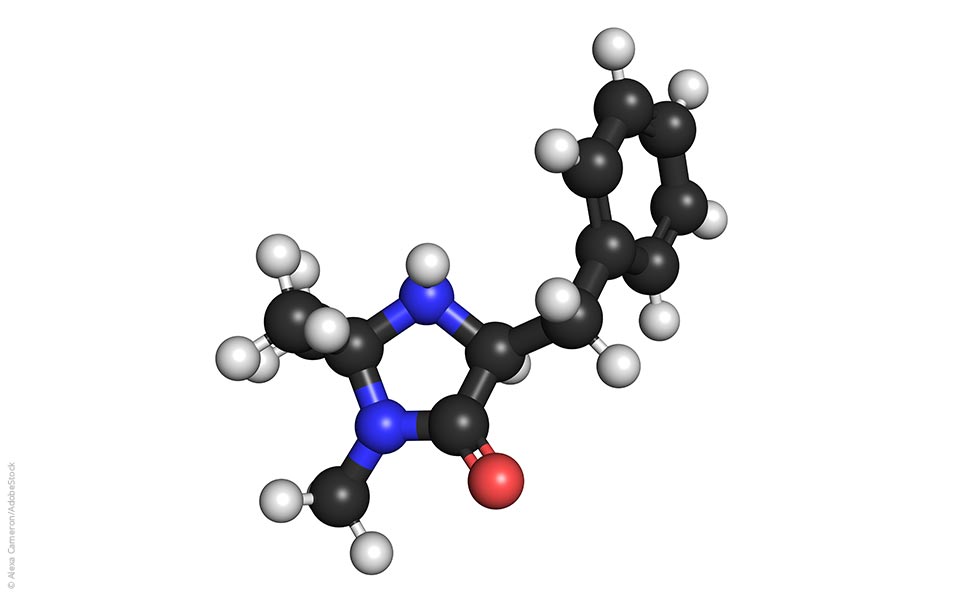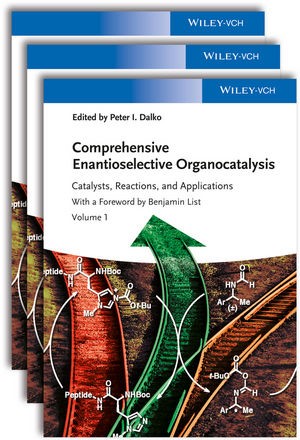
The 2021 Nobel Prize in Chemistry was awarded to Benjamin List and David MacMillan, the pioneers of a revolutionary concept in organic chemistry known as organocatalysis.
A new toolbox for organic chemists
Without catalysis, chemists would not be able to do very much (see our ScienceClip on the activation barrier). Traditional catalysts for organic molecules contain a non-organic component, usually a transition metal, which can make it difficult to remove the catalyst after the reaction is complete and often creates toxic waste when the catalyst is discarded. But what if an organic molecule could do the catalyst job? That this is indeed possible was systematically explored by this year’s laureates of the Nobel Prize in Chemistry, who demonstrated that small organic molecules can not only effectively catalyze a chemical reaction but can do so in ways that would not have been possible with traditional metal-based catalysts. Their pioneering work has created a vast new toolbox for organic chemists to play with and has greatly facilitated the synthesis of asymmetric organic compounds, including most of the small molecule drugs that we are using today.
How “organocatalysis” was born
In his foreword to the pioneering book on organocatalysis, Asymmetric Organocatalysis by Albrecht Berkessel and Harald Gröger, Nobel Prize in Chemistry Laureate David MacMillan tells the story how the term organocatalysis was coined:
“In the spring of 1998 I became very interested in the notion that small organic molecules could function as efficient and selective catalysts […]. In that same year we developed an enantioselective organocatalytic Diels Alder reaction based on iminium-activation, to the best of our knowledge a new catalysis concept we hoped would be amenable to many transformations. During the preparation of our Diels Alder manuscript, I became interested in coining a new name for what was commonly referred to as ‘metal-free catalysis’. My motivations for doing so were very simple I did not like the idea of describing an area of catalysis in terms of what it was not, and I wanted to invent a specific term that would set this field apart from other types of catalysis. The term ‘organocatalysis’ was born and a field that had existed for at least 40 years acquired a new name.”
More about organocatalysis
You can find out more about this exciting technology in many of our organic chemistry books. Here are a few recommendations:
Interesse an mehr?

Molecular Secrets of Dinosaurs: Between Fictional Stories and Fossil Clues
Fossilization is rare, as normally when an organism dies, its organic material gets completely decomposed, leaving only the hard skeleton behind. Fossils are formed under exceptional circumstances, which are still not well understood, in which organic material or...

Wie funktioniert der Heisenberg-Kompensator?
Der Heisenberg-Kompensator ist ein faszinierendes Konzept, das oft in der Science-Fiction, insbesondere in Star Trek beim Beamen von massiven Objekten und Personen, erwähnt wird. Doch abseits der fiktiven Technik gibt es in der realen Welt spannende Entwicklungen im...

Eiswürfel & Physik: Warum es Frühaufsteher leichter haben
Wer schon einmal versucht hat, an einem heißen Sommertag eine große Menge Eiswürfel zu bereiten, wird vielleicht bemerkt haben, dass der Gefrierschrank für die gleiche Menge an Eiswürfeln umso länger laufen muss, je heißer es draußen ist. Es ist doch klar, dass ich...





